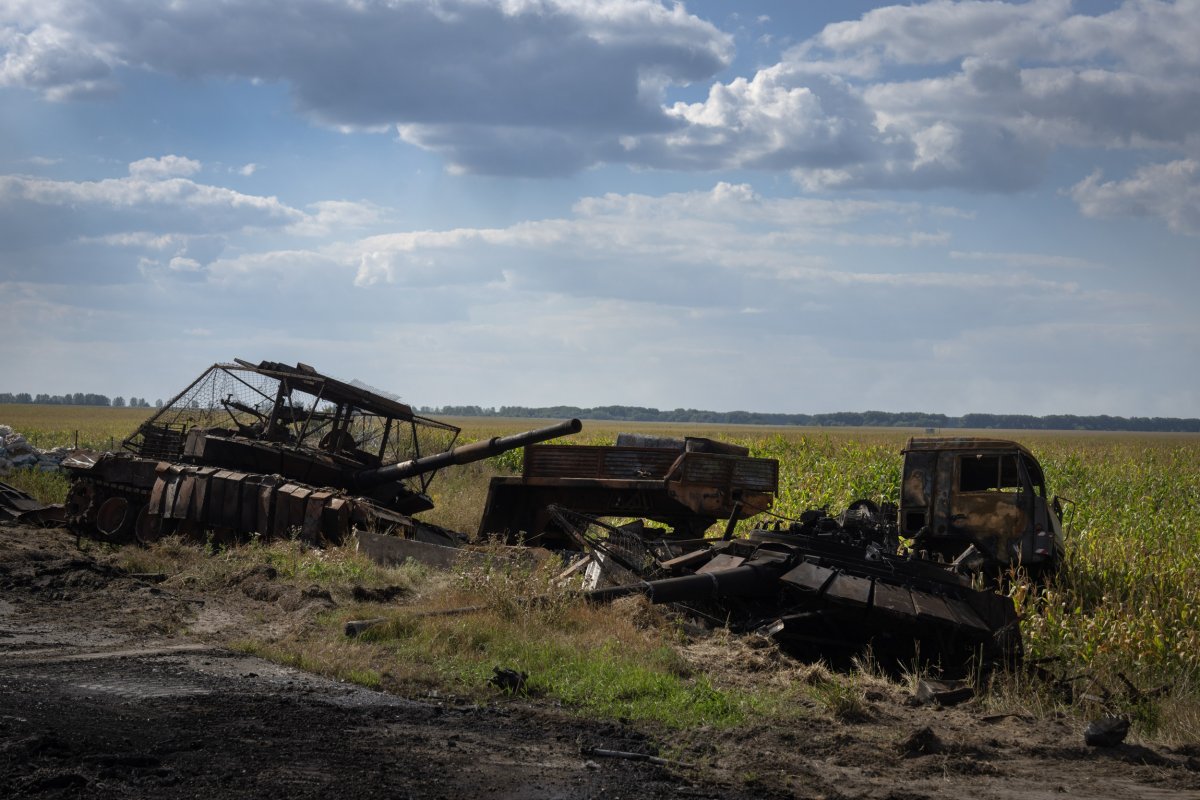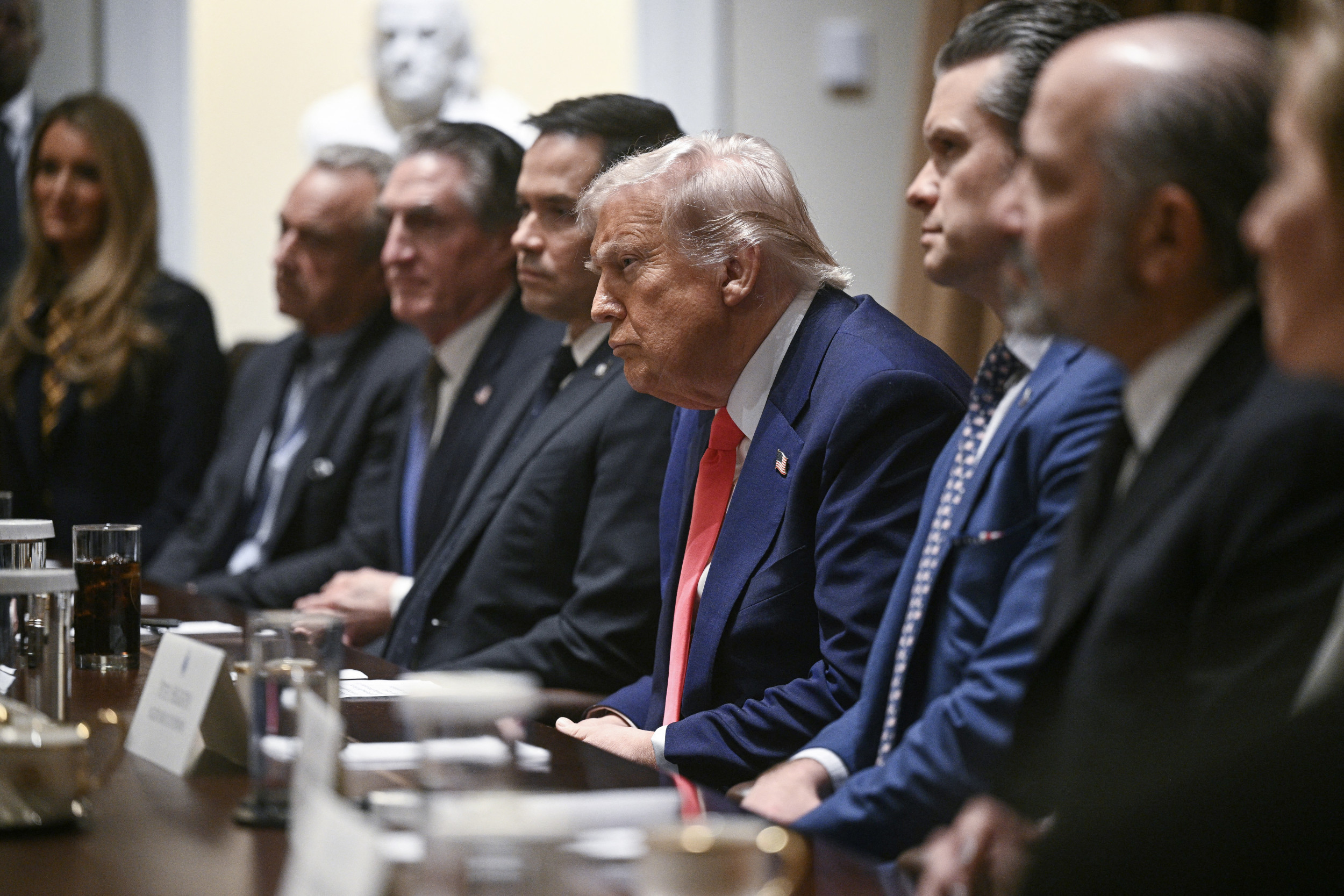🎙️ Voice is AI-generated. Inconsistencies may occur.
Russian President Vladimir Putin has reversed his stance on peace talks with Ukraine amid the ongoing incursion into Russia's Kursk region.
Speaking to a group of schoolchildren in Siberia on September 2, Putin said there will be a "desire" to enter peace talks.
"I am sure that this provocation will fail as well. It seems to me there will be a desire to really, not in words but in deeds, move on to peace negotiations and resolve these issues by peaceful means. We have never given up on this, but we must, of course, deal with these bandits who have entered the territory of the Russian Federation," Putin said.
Putin's recent comments on negotiations sharply contrast with his initial response to Ukraine's invasion of the Kursk region.

In June, Putin claimed that Russia would only enter peace talks if Ukraine withdrew troops from Donetsk, Luhansk, Zaporizhzhia, and Kherson and also abandoned its aspirations to join NATO.
Victoria Vdovychenko, program director for security studies at the Centre for Defense Strategies, a Ukrainian security think tank, told Newsweek that the Russian president is promoting peace talks because "victory is unlikely."
"Putin, after his press secretary's recent statement that negotiations with Ukraine 'have lost their relevance,' suddenly claimed that he has never refused dialogue," Vdovychenko said.
"Sensing that achieving victory is unlikely, Russia has begun promoting the idea of so-called peace negotiations, through which it aims to retain control over all occupied territories. This is happening as Russia continues to terrorize Ukraine by striking energy, civilian infrastructure, and residential buildings."
Elina Beketova, Democracy Fellow at the Center for European Policy Analysis (CEPA) told Newsweek that Kursk operation shows that Ukraine "can talk from a position of power."
"That's the only language Putin understands. Since the beginning of the full-scale invasion of Ukraine, Putin has only made cynical statements about Ukrainians who had to withdraw their soldiers from their own territories and stop defending their land," Beketova said.
"The more successes and advances Ukrainians will have, the more Russia will "not in words, but in deeds, turn to peace negotiations." Of course, we've seen many peace talks, the Minsk agreements, and numerous ceasefires that led to the full-scale Russian invasion. But only the position of power can bring peace to Ukraine."
During a visit to Russia's Tuva region on Monday, Putin asserted that Kyiv's "provocation" in the Kursk region has not impeded the Russian military's progress in Ukraine's Donetsk region, according to the RIA news agency.
Putin said Russian forces were reclaiming territory in the Kursk region "by square kilometers" and that the Ukrainian incursion there would "be dealt with."
Putin also reiterated to the schoolchildren that Ukraine's daring Kursk incursion would not halt Moscow's advances on the eastern front.
"Their calculation was to stop our offensive actions in key parts of the Donbas. The result is known...They did not achieve stopping our advance in the Donbas," Putin said.
"The result is clear. Yes, people are going through difficult experiences, especially in the Kursk region. But the main aim that the enemy had—to stop our offensive in Donbas—it did not achieve," Putin said.
The Russian president also suggested that Ukraine's military operation in Russia's Kursk Oblast was an attempt by Kyiv to strengthen its position in potential peace talks.

It comes amid reports that the Kursk incursions may be forcing the Kremlin to move troops away from priority battlefields, potentially stalling Moscow's offensives elsewhere, according to the Institute for the Study of War (ISW).
Meanwhile, Ukrainian Foreign Minister Dmytro Kuleba urged Western allies to grant Kyiv permission for long-range strikes into Russia after Moscow launched a barrage of missiles and drones on Monday.
"In defending itself against these two barbaric war machines, Ukraine is forced to fight with hands tied behind its back. Isn't this absurd?" Kuleba said in a post on X, formerly Twitter.
Kuleba claimed that Russia used North Korean missiles during the strike and called for more military aid to Ukraine.
The Ukrainian Air Force said it had destroyed 22 out of 35 missiles and 20 out of 23 attack drones sent by Russian forces.
Do you have a story Newsweek should be covering? Do you have any questions about this story? Contact LiveNews@newsweek.com
About the writer
Billal Rahman is an immigration reporter based in London, U.K. He specializes in immigration policy and border security. He has ... Read more



